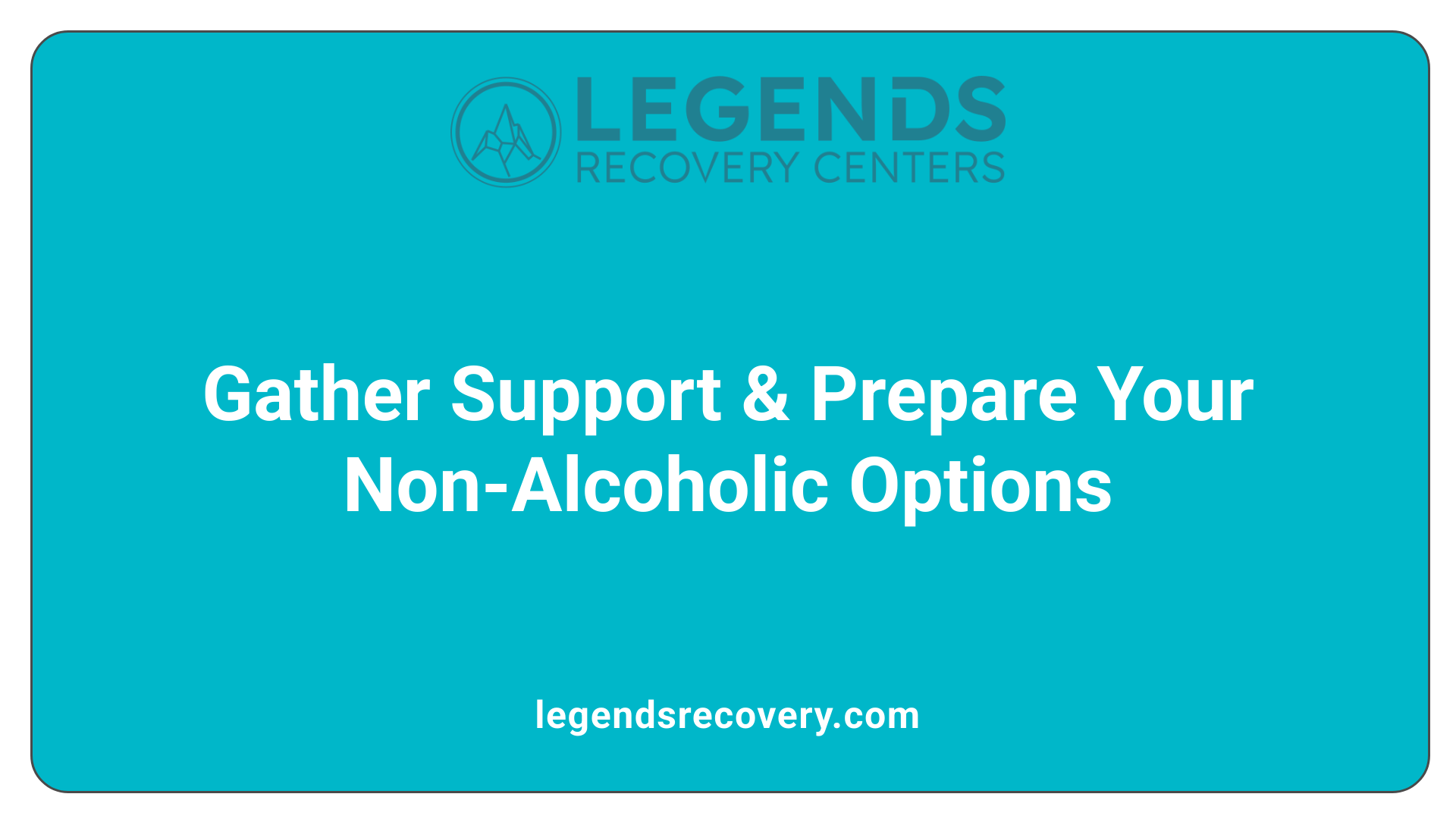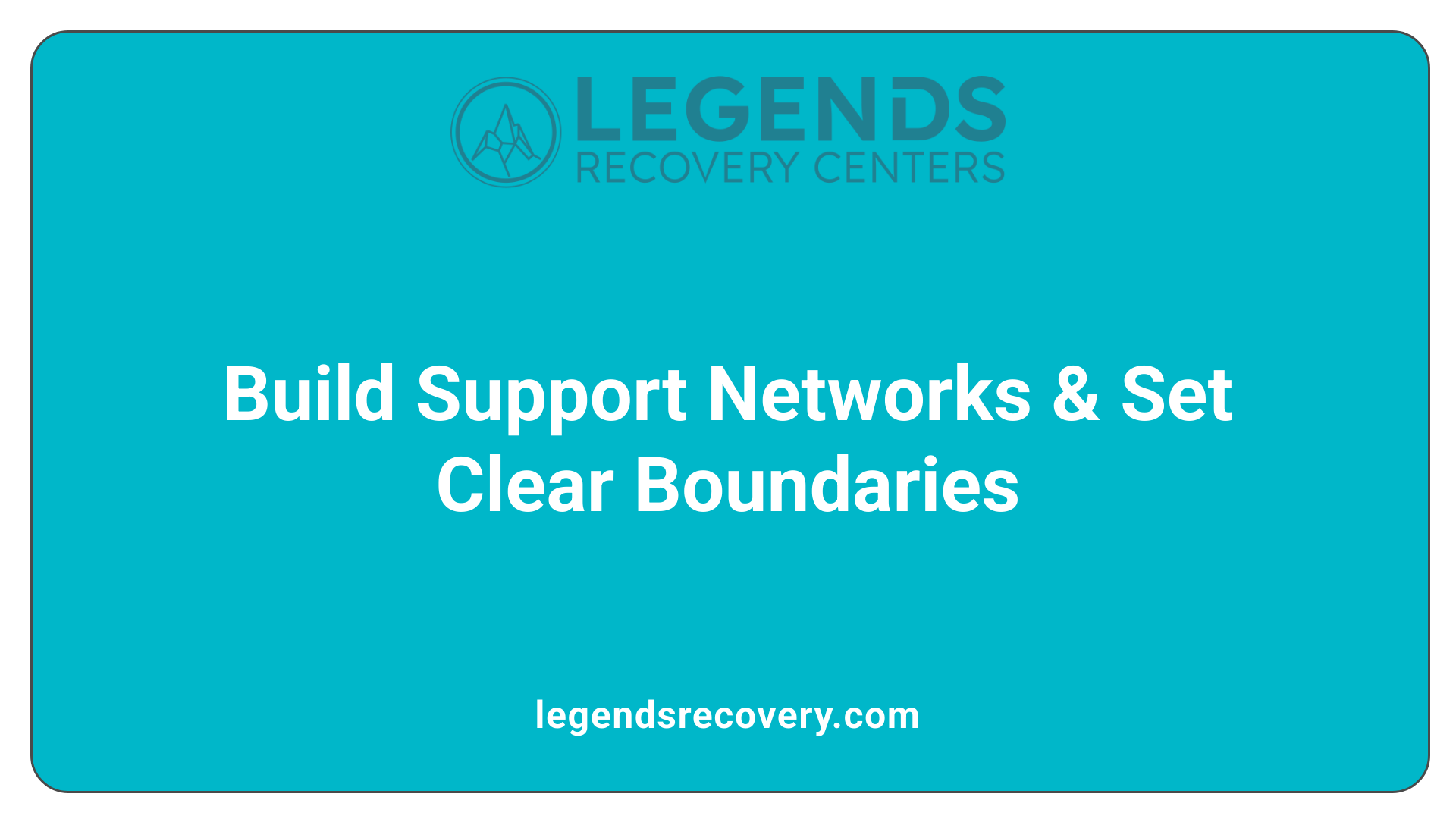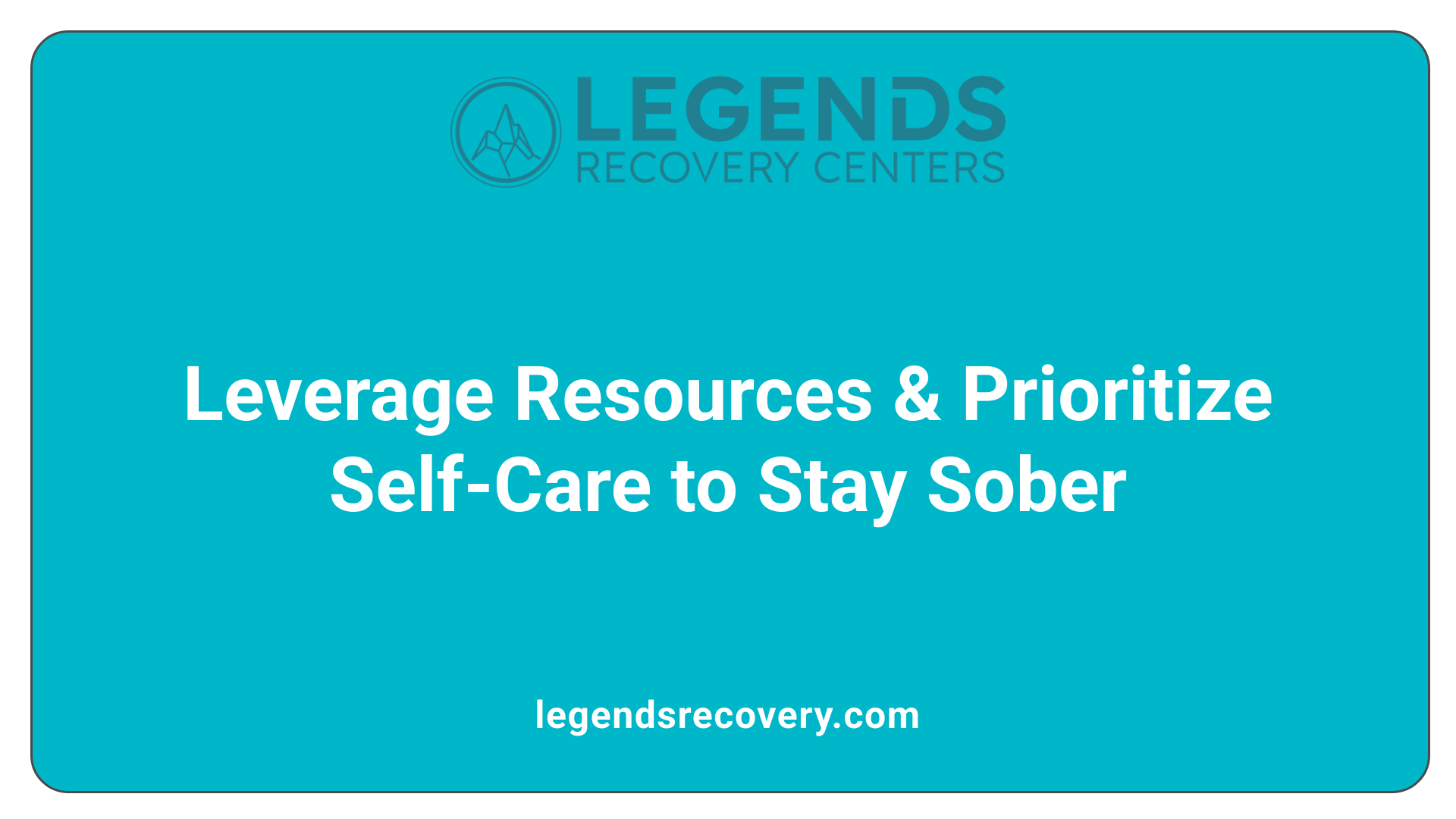Celebrating Recovery One Day at a Time: Navigating Holidays with Confidence

Holidays and special occasions are often associated with social gatherings, festivities, and, unfortunately, alcohol consumption. For individuals in recovery, these times can present unique challenges that threaten sobriety. However, with thoughtful planning, support, and self-care, it is possible to enjoy the season without compromising your recovery. This article provides comprehensive strategies and resources to help you stay sober during holidays and special events, ensuring that your journey toward wellness continues with confidence.

Maintaining sobriety during holidays and special occasions begins with thorough preparation. Developing a clear plan that includes attending support meetings, such as AA or NA, can provide ongoing encouragement. Bringing non-alcoholic drinks like mocktails or alcohol-free wines to gatherings ensures you have options and reduces the temptation to drink.
It's also helpful to create a mental

Navigating social environments where alcohol is present can be challenging, especially during holidays or celebrations. A practical approach is to plan ahead by preparing clear responses and refusal strategies. Practice saying no confidently, so you feel prepared to decline offers without hesitation.
Choosing activities that are less centered around drinking can also make a difference. Opt for outdoor adventures, game nights, or hobbies that keep your focus away from alcohol. Bringing your own non-alcoholic beverages, like mocktails or soda, ensures options are available and reduces the pressure to drink.
Building a supportive network is essential. Attend sober-friendly events or gather with friends who respect your recovery journey. Having a sober buddy can provide companionship and accountability.
Setting boundaries is vital. Don’t be afraid to leave early if you feel overwhelmed or if the environment becomes too tempting. Having an exit plan—such as arranging transportation or preparing a reason for leaving—can make it easier to manage difficult situations.
Practicing mindfulness and reflecting on your reasons for staying sober reinforce your commitment. Engaging with support organizations like Behavioral Intervention Support Agencies (BISA) can offer additional tools and encouragement to handle peer pressure effectively.
Incorporating these strategies empowers you to enjoy social events without compromising your sobriety.
Holidays often bring increased social pressures and emotional triggers, such as stress, loneliness, or family tension. Managing these challenges begins with proactive planning. Recognize your specific stressors and set personal boundaries early—whether that’s limiting time at gatherings or avoiding certain high-risk situations.
Communicate openly with loved ones about your recovery needs. Assertive responses can help you navigate comments or invitations that might trigger cravings or guilt. Preparing responses in advance allows you to handle situations confidently.
Self-care routines are crucial in maintaining resilience. Engage in relaxing activities like meditation, exercise, or hobbies that bring you peace. Connecting with a support network—whether through therapy, support groups like AA or NA, or trusted friends—provides emotional reinforcement.
Flexibility in holiday plans can also help. If certain events feel too risky, it’s okay to decline or modify your participation.
Ultimately, prioritizing your emotional and physical health during holiday times strengthens your recovery. Staying vigilant, setting boundaries, and seeking support are effective strategies to navigate social pressures and triggers during this festive season.

Maintaining sobriety during festive occasions can be challenging, but leveraging available support networks and practicing effective coping strategies can make a significant difference. Support resources such as attendance at local or virtual support groups like Alcoholics Anonymous (AA) or Narcotics Anonymous (NA) provide community and accountability. These groups offer shared experiences, encouragement, and practical advice for managing holiday-related stress and triggers.
In addition to peer support, seeking professional help through therapy or counseling can address underlying emotional issues and develop personalized relapse prevention plans. Trusted friends and family members also serve as a vital part of your support system; informing them about your needs can foster understanding and assistance.
Healthy coping mechanisms include mindfulness meditation, deep breathing exercises, journaling, engaging in hobbies, and maintaining social connections with sober peers. These activities help manage cravings by redirecting focus and calming the mind.
Building resilience involves practicing self-care routines such as regular exercise, sufficient sleep, and balanced nutrition. Cultivating a positive mindset through gratitude and reframing expectations about the holidays can reduce stress and resentment that often lead to relapse.
Preparation is crucial. Develop a relapse prevention plan outlining your triggers, response strategies, and supportive contacts. This plan can include having a list of non-alcoholic drinks, strategies for excusing yourself from triggering environments, and contact information for support hotlines like SAMHSA’s National Helpline, available at 1-800-662-HELP.
Overall, maintaining sobriety during joyous yet stressful times requires proactive planning, continuous support, and self-compassion. By integrating these strategies, you can navigate the holidays confidently and reinforce your recovery journey.
Facing potential threats to sobriety during holiday celebrations calls for advanced preparation and strategic action. Start by creating a personalized relapse prevention plan that identifies your specific triggers—whether they stem from social pressures, emotional distress, or environmental cues. Recognize when you are most vulnerable, and develop tailored responses to each situation.
Before attending an event, plan how to manage cravings. This could include engaging in distracting activities such as playing with a non-alcoholic drink, practicing relaxation techniques like deep breathing or meditation, or rehearsing assertive phrases to decline offerings of alcohol or drugs.
Utilize available support resources, such as the SAMHSA National Helpline (1-800-662-HELP), which provides free confidential assistance. They can connect you with local support groups, mental health services, or addiction treatment options if you feel overwhelmed.
During the event, remain mindful of warning signs like irritability, fatigue, or feeling disconnected, which can signal increasing vulnerability. Practice self-care by staying hydrated, taking breaks when needed, and focusing on positive aspects of the gathering.
Remind yourself why you chose sobriety, and keep supportive items, such as a non-alcoholic beverage or a sober buddy, close by. Reflect afterward on what strategies worked well and areas for improvement, and continue seeking ongoing support to strengthen your resilience.
By preparing in advance and remaining mindful during festivities, you can navigate challenging situations effectively, preserving your sobriety and fostering long-term recovery.
Maintaining sobriety during festive events and gatherings can be challenging but achievable with thoughtful planning. Prepare ahead by bringing non-alcoholic beverages like mocktails or flavored water to social occasions, giving you options and reducing the likelihood of feeling pressured to drink. Set clear personal boundaries, and be ready with responses to declining alcohol politely but firmly. Having an exit strategy, such as leaving early if the environment becomes difficult, is also helpful. Support from recovery friends, sponsors, or groups like AA or NA can provide encouragement and accountability during stressful moments. Engaging in activities that are alcohol-free and meaningful, such as games, conversations, or community service, can divert attention from drinking. Prioritizing self-care by maintaining routines like healthy eating, exercise, and mindfulness enhances emotional stability. Remember, focusing on what you can control—your environment, responses, and self-care—makes it easier to stay sober during holiday festivities.
Navigating social settings with the temptation to drink requires strategic planning. Practice refusing offers confidently and prepare responses that you are comfortable with, such as "No, thank you, I’m focusing on my health" or "I don’t drink, but I’d love a non-alcoholic beverage." Selecting activities that do not center around alcohol, like outdoor adventures or hobby-based gatherings, helps reduce exposure to temptations. Bring your own non-alcoholic drinks to social events, which can serve as both a comfort and a safeguard against peer pressure. Building a network of sober friends or support groups adds a layer of encouragement. Setting clear boundaries, such as arriving late or leaving early if you feel overwhelmed, is critical. Having an exit plan—like a bus, cab, or designated driver—reduces stress about transportation and provides peace of mind. Seeking support from organizations like BISA or connecting with sober support groups can reinforce your coping strategies. Remember, your sobriety is worth prioritizing, and having steps prepared makes it easier to decline offers and stay committed.
Managing social pressures and triggers during holidays involves recognizing potential stressors and planning your responses. Be aware of how family dynamics, past traumas, or social obligations might lead to cravings or emotional distress. Establish boundaries with loved ones, such as politely declining invitations that feel unsafe or setting limits on certain activities. Prepare assertive statements to handle comments or questions about your choices, and don’t hesitate to leave situations that feel overwhelming. Engage in self-care practices like meditation, deep breathing, or physical activity to manage stress levels. Connecting with supportive friends, sponsors, or therapists provides emotional reinforcement. Practicing mindfulness helps you stay focused on your reasons for sobriety. Setting goals for the holiday, such as creating new traditions or volunteering, can shift attention away from triggers and foster positive feelings. Remember, it’s okay to alter or skip certain gatherings to protect your recovery. Your well-being is the priority, and managing social pressures effectively gives you a more joyful and stress-free holiday experience.
Creating new holiday traditions that emphasize sobriety can foster a sense of purpose and joy. Consider organizing sober gatherings like game nights, movie marathons, or outdoor adventures with friends and family. These activities promote connection without alcohol and help build lasting memories. Getting involved in volunteer activities during the season, such as helping at shelters or community centers, provides meaningful engagement and a sense of giving. Additionally, reframing holiday expectations by focusing on gratitude, self-care, and personal growth can reduce stress and enhance your mood. Celebrating sobriety also involves recognizing your achievements and resilience. Reward yourself with activities you love, such as attending a concert, taking a nature walk, or practicing a new hobby. Sharing your journey with others can inspire them and strengthen your support network. By developing these positive traditions, you create a supportive environment that celebrates health and happiness. This mindset empowers you to enjoy the holidays fully and maintain your sobriety with confidence and joy.
The holiday season offers a unique opportunity for individuals in recovery to reaffirm their commitment to sobriety while creating joyful memories. Success in maintaining sobriety during this time hinges on diligent planning, seeking support, and engaging in self-care. Remember to set boundaries, develop coping strategies, and embrace new traditions that celebrate health and connection rather than substances. The journey of recovery is ongoing, and each holiday overcome with resilience adds to your strength and confidence. With practical tools, community support, and a positive mindset, you can navigate this festive season sober and empowered, turning challenges into opportunities for growth and renewal.